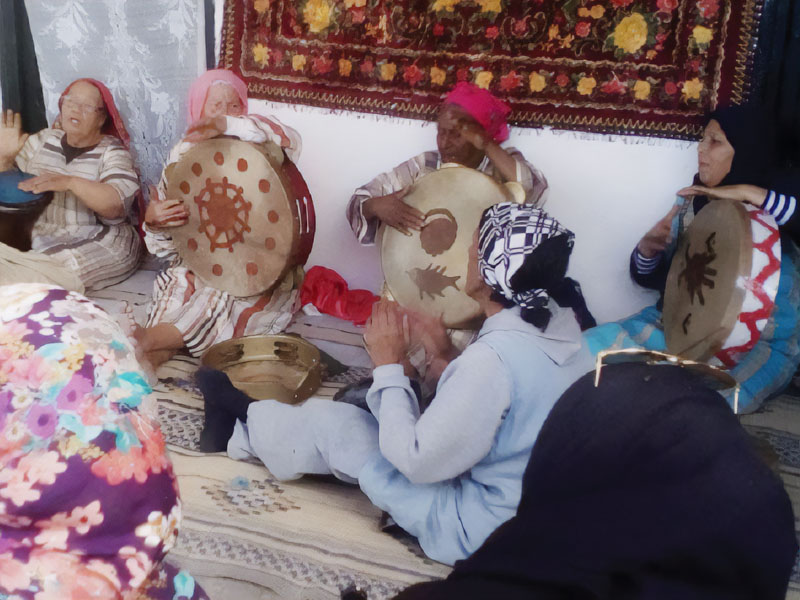Zardah: Tribal Law and Religious Prohibition
Issue 56

Dr. Manjia Al Tumi, a researcher from Tunisia
“Zardah” is a common term in Tunisia, and it is known as "Wadah" in other regions. Whether the sacred is a cosmic phenomenon or a living creature. Zardah is a sociocultural phenomenon that was prevalent in modern and ancient communities. It led people to develop symbols and pictures and to see the world through structured rituals. People's collective beliefs and cultural norms are shaped by such holy phenomena.
There are various theoretical concepts and perspectives concerning the Zardah. The majority of the general public tends to view the rites as acceptable and respectable since they represent an ancestral tradition that should be honoured, but most academics and scholars would prefer to prohibit them because Islam emphasises the need to eliminate inherited tribal rituals including Zardah, and they like to refer to Zardah ceremonies as "Satan's weddings."
The Arab practices many rituals in order to get closer to the sacred in its various forms, and these rituals are “a set of procedures and movements that come in response to the religious experience and aim to establish a connection with the sacred worlds”. In the context of discussing the culture of the ancient East, Firas Sawah classifies ritual practices into three main types: magical rituals; religious rituals; and important seasonal rituals.
Magical rituals are founded on the notion that a supernatural force exists in all areas of the cosmos, a power that a magician or priest proficient in the arts of magic may possess and use to heal incurable ailments, expel evil spirits and control natural elements. In order to promote fertility, rituals are performed on a regular basis.
Zardah is one of man's everyday religious rituals to get closer to righteous souls. Prayers are recited, food is prepared, sacrifices are made, and food and drink are served at the shrines of the righteous. It is a religious activity and a type of folk spirituality that manifests the sacred through devotional and ceremonial activities.
Despite the fact that Islam prohibits the celebration of the Zardah, most Arabs of all intellectual and theological backgrounds regard it as acceptable and beneficial because they still believe in the blessings of righteous and virtuous people. Their affection for these people and their blessings has not waned, and these celebrations are still held in Tunisia.







































































